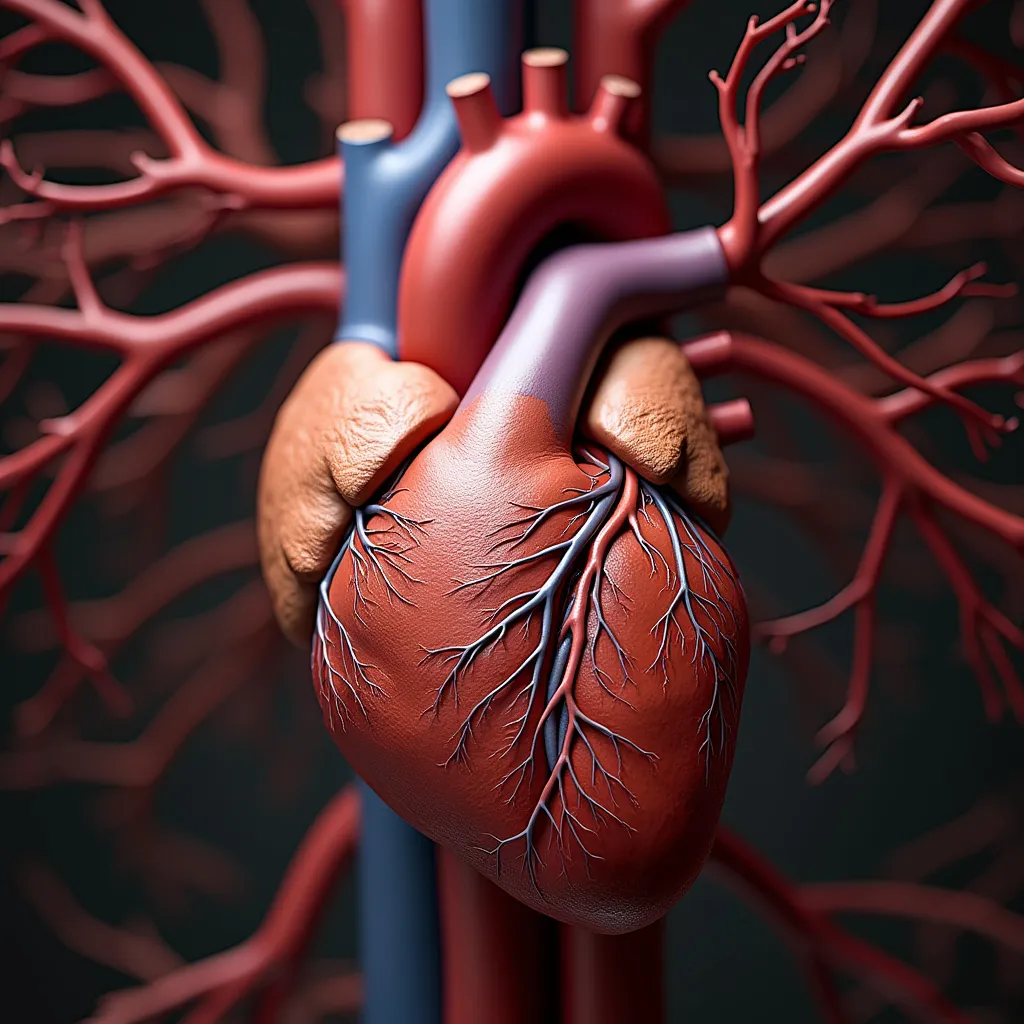In the quest for heart health, much attention is paid to foods we should avoid. However, understanding what we should eat may be even more crucial for maintaining healthy arteries. This approach challenges conventional wisdom about heart-healthy nutrition, focusing instead on the science of arterial health at the cellular level.
Understanding Arterial Health: The Endothelial Layer
The key to arterial health lies in supporting the endothelial layer—the thin tissue lining the inside of our blood vessels. This critical layer:
- Controls blood pressure regulation
- Acts as a filter, especially in the kidneys
- Prevents blood clots
- Contributes to immune function
Interestingly, the endothelial layer’s preferred fuel is glucose. However, this doesn’t mean we need to consume large amounts of carbohydrates. Our bodies can efficiently produce glucose without direct carbohydrate consumption. The endothelial layer’s reliance on glucose means it also requires insulin to utilize this fuel effectively.
The Insulin Resistance Problem
Herein lies a significant issue affecting arterial health: insulin resistance. The majority of the population suffers from some degree of insulin resistance, which develops through:
- Chronic overconsumption of carbohydrates
- Frequent snacking patterns
- Poor dietary choices that constantly elevate insulin levels
When insulin resistance occurs, the endothelial layer cannot access its preferred fuel, compromising arterial function and health.
The Nitric Oxide Factor
Nitric oxide plays a vital role in arterial health by:
- Relaxing blood vessels
- Preventing arterial stiffness
- Supporting the endothelial layer
Several nutrients and conditions influence nitric oxide production:
- Vitamin D powerfully supports nitric oxide production, explaining why vitamin D deficiency often correlates with hypertension.
- Arginine, an amino acid many people supplement with to lower blood pressure.
- Testosterone increases nitric oxide levels, though environmental factors like plastics can suppress testosterone production.
- Magnesium relaxes muscle spasms, reduces cortisol (a stress hormone that increases blood pressure), and prevents calcium buildup in arteries.
Challenging Conventional “Heart-Healthy” Recommendations
The current mainstream heart-health recommendations deserve scrutiny. For example, foods certified as “heart-healthy” by major organizations often need only contain 51% whole grains to qualify—despite potentially containing refined grains and sugars in the remaining 49%.
Similarly, seed oils marketed as heart-healthy and recommendations to avoid saturated fats may be misguided. While red meat is often vilified for its saturated fat content, coconut oil contains more cholesterol per teaspoon than a significant portion of steak, yet faces less criticism.
Despite these conventional recommendations, heart disease statistics continue to worsen, suggesting the traditional approach is ineffective.
The #1 Best Meal for Arterial Health
Based on supporting the endothelial layer and providing crucial nutrients, the optimal meal for arterial health consists of:
Main Component: Red Meat

- Contrary to conventional advice, grass-fed red meat provides essential nutrients for arterial health
- Aim for 6-8 ounces of high-quality, grass-fed beef
- Consider adding raw cheese (high in vitamin K2, which prevents arterial calcification)
- Red meat provides zinc, which improves testosterone levels and, consequently, nitric oxide production
- Supplies bioavailable protein to support heart muscle tissue
Side Component: Nutrient-Dense Salad
- Arugula serves as an excellent base, naturally increasing nitric oxide levels
- Provides vitamin C and E, both supportive of arterial health
- Add pumpkin seeds for their high magnesium, zinc, and selenium content
- A handful of pumpkin seeds per meal can significantly boost nitric oxide production
Essential Supplement: Vitamin D
- Virtually impossible to obtain adequate amounts from food alone
- Summer sunlight exposure (without burning) is effective
- During winter or periods of limited sun exposure, supplement with at least 10,000 IU daily
- Vitamin D powerfully supports heart health through multiple mechanisms
The Ketogenic Advantage
A low-carbohydrate or ketogenic approach offers unique benefits for arterial health:
- Bypasses insulin resistance issues
- Provides ketones as an alternative fuel source for the body, including the endothelial layer
- Reduces inflammation
- Stabilizes blood sugar levels
Moving Beyond Conventional Wisdom
This evidence-based approach to arterial health challenges the long-standing dietary recommendations that have failed to reverse heart disease trends. Rather than focusing on low-fat, whole-grain diets, supporting arterial health may require:
- Minimizing insulin resistance through carbohydrate restriction
- Providing nutrient-dense, bioavailable proteins
- Ensuring adequate intake of key nutrients like vitamin D, magnesium, and zinc
- Supporting natural nitric oxide production
By focusing on the science of endothelial health rather than outdated nutritional dogma, this meal plan offers a promising alternative for those seeking to maintain or improve their arterial health.





